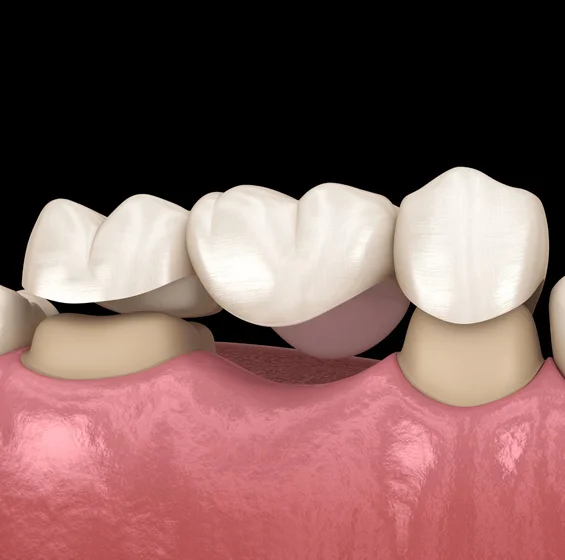
Revive Your Smile with Custom Dental Bridges
What is a Dental Bridge?
Types of Dental Bridges
Traditional Fixed Bridge: Uses crowns on nearby natural teeth to support the artificial teeth (pontics).
Cantilever Bridge: Suitable when only one neighboring tooth is available for support.
Maryland Bridge: Features a metal or porcelain framework that attaches to the backs of adjacent teeth to hold the pontics in place.
How Are Dental Bridges Placed?
Initial Consultation: Your dentist in Phoenix, AZ will check your oral health, talk about your options, and decide on the best type of bridge for you.
Preparation: During your first visit, the teeth next to the gap (abutment teeth) will be reshaped to fit the crowns that will support the bridge.
Impressions: Detailed impressions of your teeth are taken to make a custom bridge that matches your natural teeth.
Temporary Bridge: While your permanent bridge is being made, a temporary one is placed to protect your exposed teeth.
Final Placement: At your next visit, the temporary bridge is removed, and the new bridge is checked for fit and comfort before being permanently attached.
Do You Need Dental Bridges?
If you’re missing one or more teeth, dental bridges might be a great option for you. Bridges can restore the look of your smile, improve your ability to chew, and stop nearby teeth from moving. These custom-made replacements attach to adjacent teeth or implants, filling the gap seamlessly. Whether your missing teeth are due to injury, decay, or other issues, bridges provide a durable and natural-looking solution to boost your oral health and confidence.
At our practice in Phoenix, AZ, our team is skilled in evaluating your dental needs and suggesting personalized treatment plans.
What Are the Benefits of Dental Bridges?
Enhanced Appearance: Bridges fill in gaps from missing teeth, improving the look of your smile and boosting your confidence.
Better Chewing and Speaking: Replacing missing teeth with bridges helps you chew and speak more effectively.
Maintained Facial Structure: Bridges keep your face’s shape intact by preventing nearby teeth from shifting into the empty space.
Balanced Bite: They evenly distribute bite forces, reducing stress on your remaining natural teeth.
Prevention of Dental Issues: By closing gaps, bridges stop adjacent teeth from moving and help avoid potential dental problems.


